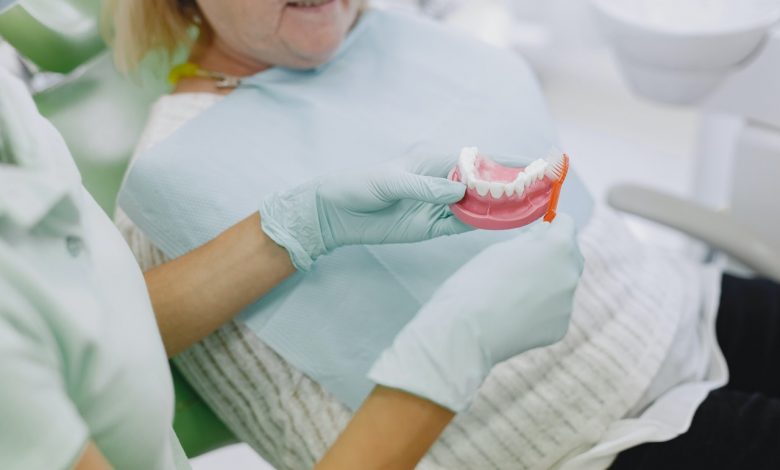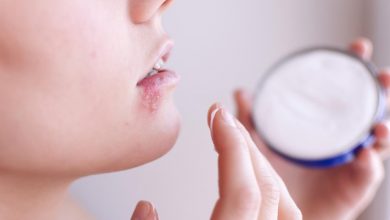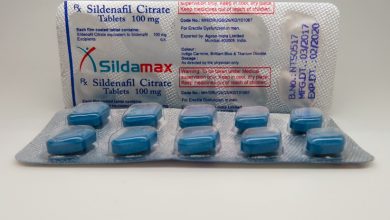3 Quick Tricks to Safely Remove Stains and Whiten Dentures

People notice what your teeth look like, so having missing teeth can make you feel self-conscious. You’ll also have difficulty speaking, chewing, and performing other basic tasks with missing teeth. Thanks to teeth appliances like dentures, you can restore your smile after suffering from gum disease, tooth decay, or injury that resulted in tooth loss.
When you first got your dentures from your Etobicoke family dentist, they may have been perfectly white. You felt like your smile could outshine everything except the sun. However, their whiteness can begin to fade and even start turning yellow.
The good news is that you don’t need to worry about denture stain problems and how to clean them safely to restore their original shine. We understand how a dazzling smile is critical to your comfort and confidence. From cleaning your dentures regularly to soaking them in a cleaning solution, knowing quick tips will help you know which will work best for you.
This post covers home and professional advice on taking care of your dentures and removing stains, along with key steps you must remember to prevent stains on your dentures. Let’s get right into them.
Whitening Stained Dentures at Home
- Brush your dentures.
Like natural teeth, your dentures also need regular brushing with conventional toothpaste. When you brush your dentures, you need to be extra aggressive. It’s ideal to brush them several times daily, preferably after eating your meals.
Brushing is one of the best ways to eliminate and prevent stains. You also need to pay attention to your eating and drinking habits. Some food and beverages may contain ingredients that quickly stain your teeth. Regular brushing can offset the stains these products produce.
- Use natural whiteners.
You can also consider using natural whiteners, like baking soda and lemon juice. Baking soda is a safe and effective product to eliminate denture stains. It is non-abrasive, so it won’t tarnish your teeth. Brush your dentures with baking soda, and rinse them thoroughly.
Also, make sure to remove the baking soda completely. An alternative to baking soda is white vinegar. When using vinegar, you need to soak your dentures, rinse, and clean them thoroughly before you put them in your mouth again.
You can also use lemon juice. This contains some stain removal and bleaching properties that may help you with your denture stain issues. Squeeze the lemon juice into a cup with water. Soak your dentures in the solution, preferably leaving them in it for 30 to 40 minutes. Take them out and rinse with cold water. Remember not to soak them for more than 40 minutes as lemon also has corrosive properties that can damage your dentures.
- Use denture cleaners.
Bleaching can effectively be used for lightening objects, including your dentures. However, chlorine bleach can pose health hazards, so you must use this substance carefully. Experts also advise not to use bleach on dentures that have soft or metal parts to prevent damage.
When using bleach, mix it with water. You can use 1 cup of water, a teaspoon of bleach, and 1 teaspoon of water softener to get the best and safest results. Soak your dentures in this chemical solution and let them sit for 10 to 15 minutes.
Another chemical compound you can use is hydrogen peroxide. It is known for its bleaching effects and can be commonly found in many teeth whitening products. Using hydrogen peroxide, remove your dentures, coat them with this mild antiseptic, and gently brush them. Rinse your dentures thoroughly to remove the stains on your dentures’ surface effectively.
Whitening Stained Dentures with a Professional Dental Technician
If you’ve noticed that the stains don’t seem to go away after you use home cleaning, consider consulting a dental healthcare expert, like a denturist in London, Ontario. Professionals have medical equipment capable of removing surface stains and polishing your dentures to get that brand-new look with a fresh feel for your mouth within minutes.
Dental experts also recommend having your dentures cleaned by a professional twice a year unless you’re instructed otherwise.
How to Prevent Denture Stains
The stains in your dentures are not only because of frequent usage. They are also caused by your food intake and failure to follow expert-recommended dental practices that your family dentist recommends. Aside from attending your dental appointments, here are excellent ways to prevent denture stains:
- Rinse your dentures regularly after eating, and brush them once daily (preferably with a soft-bristled toothbrush).
- To keep your dentures’ shape, soak them at night in a cleaning solution or water.
- Avoid using abrasive cleaners or materials when brushing or soaking them.
- Don’t use hot water to prevent warping.
- Repeat this routine every day to keep stains at bay.
In addition, you need to pay attention to your daily food and beverage intake. Minimize coffee, tea, red wine, tomato sauce, and berries to ensure your dentures stay shiny and white. To prevent further discolouration, avoid tobacco and cigarette use. They contain tar and nicotine that coat your dentures and give them a yellowish tint.
When you can’t completely do away with these habits, make sure to rinse your dentures every day and after you eat to avoid the development of stains.Proper care of your dentures in Sarnia is as essential as your overall health. With proper denture maintenance, you can prolong their life for up to 10 years and continue regaining the natural function of your teeth. If the home-cleaning products don’t work, contact your local dentist immediately to avoid further damage and stain problems.




